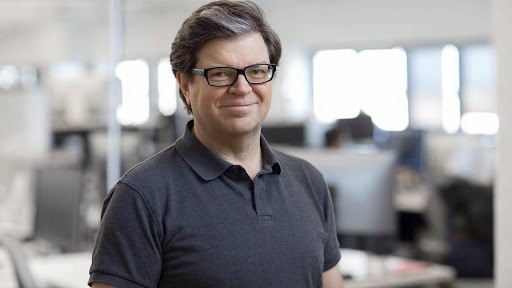Yann LeCun, Chief of Meta AI, Discusses the Upcoming AI Revolution

The Future of Artificial Intelligence: Insights from Yann LeCun
Yann LeCun’s Vision at the K-Science and Technology Global Forum
At the recent 2024 K-Science and Technology Global Forum in Seoul, South Korea, Yann LeCun, the Chief AI Scientist at Meta and a leading figure in the evolution of artificial intelligence, shared his views on the current state and future potential of AI. LeCun believes that we are standing on the brink of what he calls the "true AI revolution," which, according to him, is yet to fully materialize.
AI’s Transformative Potential
During his address, LeCun emphasized the idea that AI is set to revolutionize the way humans interact with technology. He stated, "In the near future, every single one of our interactions with the digital world will be mediated by AI assistants." His vision includes the development of AI systems that possess intelligence comparable to that of humans, fundamentally altering our relationship with technology.
Limitations of Current AI Models
LeCun acknowledged the significant advancements made by generative AI models, such as OpenAI’s ChatGPT and Meta’s Llama, which have gained popularity for their capabilities in processing language. However, he pointed out several limitations:
- Context Understanding: Current language models are adept at understanding and generating text, but they struggle with real-world complexities.
- Reasoning and Planning: These models are not yet capable of reasoning and planning in a manner that mimics human understanding.
- Physical World Interaction: LeCun stressed that existing AI systems do not comprehend the physical world as babies do when they learn and explore their environments.
Bridging the Gap: New AI Architectures
To address these challenges, LeCun revealed Meta’s initiative to create a new AI architecture. This innovative system aims to observe and learn from the physical world in a way similar to how infants interact with their surroundings. The goal is to develop an AI that can accurately predict and navigate the complexities of the real world, thus paving the way for more advanced AI capabilities.
- Objective-Driven AI: The new architecture will focus on being goal-oriented, allowing the AI to make predictions based on its understanding of its environment.
The Importance of an Open-Source AI Ecosystem
LeCun advocates for a collaborative approach to AI development. He asserts that to be effective, AI models should be trained with a diverse range of cultural contexts, languages, and value systems. He expressed concern over relying on singular entities for AI training, stating, "We can’t have a single entity somewhere on the West Coast of the United States train those models."
Global Cooperation in AI Development
The importance of international collaboration cannot be overstated. By pooling resources and knowledge from around the world, the development of AI can become more inclusive and representative of different societies.
Caution Against Premature Regulation
While LeCun sees immense promise in the future of AI, he is also wary of potential regulatory measures that could hamper innovation. He highlighted the dangers of imposing restrictive laws too early, warning that such regulations could stifle open-source development.
- Regulation Risks: “Regulation can kill open source,” he warned, urging governments to adopt a more balanced approach that fosters technological progress.
- Evaluating AI Risks: LeCun noted that there is no evidence to suggest that any AI system is inherently dangerous, suggesting that fears surrounding AI should not impede further advancements.
In summary, Yann LeCun’s insights reveal a future full of possibilities and challenges for AI. His vision emphasizes a need for innovation, collaboration, and careful consideration regarding the regulation of technology.






